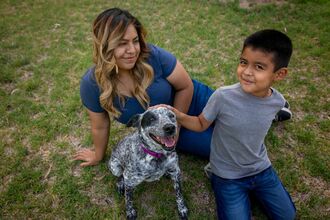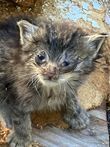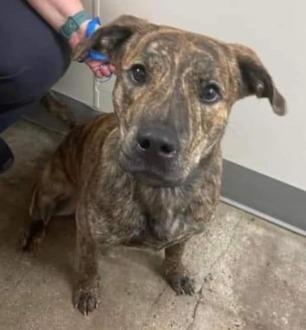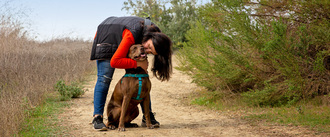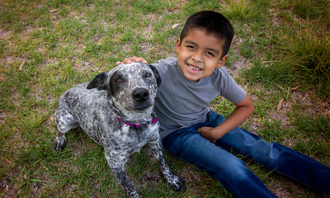-
Support Safe, Humane Communities for People and Pets in Santa Fe CountyEarlier this year, the New Mexico state legislature passed a humane initiative memorial [HM024]. Memorials (or resolutions) are a way for the state legislature to express legislative desire through declaration, frequently addressed to other governmental bodies, such as local government. A humane resolution makes the statement that elected officials want to see local municipal agencies and animal shelter managers work toward ending killing in shelters. They help to draw a line in the sand, and get everyone on the same page, driving toward the goal of saving the lives of dogs and cats. Now it’s time for local communities to commit their support for lifesaving by passing a humane resolution.104 of 200 Signatures
-
Support Safe, Humane Communities for People and Pets in Eddy CountyEarlier this year, the New Mexico state legislature passed a humane initiative memorial [HM024]. Memorials (or resolutions) are a way for the state legislature to express legislative desire through declaration, frequently addressed to other governmental bodies, such as local government. A humane resolution makes the statement that elected officials want to see local municipal agencies and animal shelter managers work toward ending killing in shelters. They help to draw a line in the sand, and get everyone on the same page, driving toward the goal of saving the lives of dogs and cats. Now it’s time for local communities to commit their support for lifesaving by passing a humane resolution.28 of 100 Signatures
-
Support Safe, Humane Communities for People and Pets in Sandoval CountyEarlier this year, the New Mexico state legislature passed a humane initiative memorial [HM024]. Memorials (or resolutions) are a way for the state legislature to express legislative desire through declaration, frequently addressed to other governmental bodies, such as local government. A humane resolution makes the statement that elected officials want to see local municipal agencies and animal shelter managers work toward ending killing in shelters. They help to draw a line in the sand, and get everyone on the same page, driving toward the goal of saving the lives of dogs and cats. Now it’s time for local communities to commit their support for lifesaving by passing a humane resolution.84 of 100 Signatures
-
Save Our Community Cats in Chillicothe, MOAre you saddened, annoyed, frustrated to see so many stray, community cats in your neighborhood and town? Spaying , Neutering, vaccinating and releasing these community cats back into their area, with support to those that care for them, is the long term solution to the cat over population problem. What’s in it for our community? Over time, these cats that are spay, neutered and vaccinated, have been a proven solution to lowering the numbers over time. Not only that, but the many frustrations of behaviors from unaltered cats such as mate calling, spraying, multiple litters, cats getting into trash and cats roaming into your neighborhood are solved by spaying, neutering and vaccinating the local cat population. For many years communities have trapped and killed these defenseless community cats to only still see cat populations grow. Spaying/neutering and keeping the cats in their neighborhood, keeps other non altered cats from entering the neighborhoods. This way only altered less nuisance cats are the ones you will see. The ones that will not be causing all the nuisance of not being altered. And over time it is proven that cat populations lower significantly. Let’s be the solution not the problem. Using the community money to spay/neuter and vaccinate unaltered cats is what solves the problem, not spending money to trap and kill them. Not trapping and taking to the local shelter where that space is needed for cats that are seriously in need such as injuries. Your support in this campaign is vital to the health and wellness of the community. Thank you!93 of 100 SignaturesCreated by Allisha E.
-
Support Safe, Humane Communities for People and Pets in Doña Ana CountyEarlier this year, the New Mexico state legislature passed a humane initiative memorial [HM024]. Memorials (or resolutions) are a way for the state legislature to express legislative desire through declaration, frequently addressed to other governmental bodies, such as local government. A humane resolution makes the statement that elected officials want to see local municipal agencies and animal shelter managers work toward ending killing in shelters. They help to draw a line in the sand, and get everyone on the same page, driving toward the goal of saving the lives of dogs and cats. Now it’s time for local communities to commit their support for lifesaving by passing a humane resolution.126 of 200 SignaturesCreated by Kelly B.
-
End Breed Bans In Iowa!We cannot wait for someone else to do something about Breed Specific Language. Remaining silent will only allow your rights to be violated continuously. The time for action is not tomorrow-it is NOW! We stand together for all dogs, will you take a stand with us?269 of 300 SignaturesCreated by Kathleen C.
-
Support Safe, Humane Communities for People and Pets in SocorroEarlier this year, the New Mexico state legislature passed a humane initiative memorial [HM024]. Memorials (or resolutions) are a way for the state legislature to express legislative desire through declaration, frequently addressed to other governmental bodies, such as local government. A humane resolution makes the statement that elected officials want to see local municipal agencies and animal shelter managers work toward ending killing in shelters. They help to draw a line in the sand, and get everyone on the same page, driving toward the goal of saving the lives of dogs and cats. Now it’s time for local communities to commit their support for lifesaving by passing a humane resolution.26 of 100 Signatures
-
Support Safe, Humane Communities for People and Pets in Ohkay OwingehEarlier this year, the New Mexico state legislature passed a humane initiative memorial [HM024]. Memorials (or resolutions) are a way for the state legislature to express legislative desire through declaration, frequently addressed to other governmental bodies, such as local government. A humane resolution makes the statement that elected officials want to see local municipal agencies and animal shelter managers work toward ending killing in shelters. They help to draw a line in the sand, and get everyone on the same page, driving toward the goal of saving the lives of dogs and cats. Now it’s time for local communities to commit their support for lifesaving by passing a humane resolution.39 of 100 Signatures
-
Dile a los oficiales de Donna: que apoyen la programación de albergues para animales que salvan v...A veces, cuando quieres crear un cambio en tu comunidad, es difícil saber por dónde empezar. Juntos podemos hacer cambios sostenibles que salven vidas mientras creamos un marco de apoyo para las mascotas de Donna y las personas que se preocupan por ellas. Los animales que terminan en el albergue son parte de esta comunidad y los oficiales locales necesitan saber que usted se preocupa por toda la comunidad, , tanto como las mascotas, como las personas. Ellos necesitan saber que usted está de acuerdo que el albergue de animales locales adopte políticas que disminuyan el número de perros y gatos sacrificados y que usted apoya la provisión de los recursos necesarios para hacerlo. Algunos ejemplos de recursos incluyen programas comunitarios para gatos (para asegurar que los gatos sean castrados, vacunados y devueltos a sus hogares), programas de hogar temporal (para proporcionar alojamiento temporal a las mascotas antes de encontrar sus hogares permanentes), puntos de adopción y servicios y recursos progresivos para asegurar que la gente tenga lo que necesita para mantener a sus mascotas. Al abogar por estos programas y por la colaboración y el apoyo continuada a su albergue de animales local, usted puede formar parte de la creación de una comunidad más saludable para las mascotas y las personas. ¡Muestra tu apoyo firmando y compartiendo hoy mismo!47 of 100 Signatures
-
Dile a los oficiales de Penitas: que apoyen la programación de albergues para animales que salvan...A veces, cuando quieres crear un cambio en tu comunidad, es difícil saber por dónde empezar. Juntos podemos hacer cambios sostenibles que salven vidas mientras creamos un marco de apoyo para las mascotas de Penitas y las personas que se preocupan por ellas. Los animales que terminan en el albergue son parte de esta comunidad y los oficiales locales necesitan saber que usted se preocupa por toda la comunidad, , tanto como las mascotas, como las personas. Ellos necesitan saber que usted está de acuerdo que el albergue de animales locales adopte políticas que disminuyan el número de perros y gatos sacrificados y que usted apoya la provisión de los recursos necesarios para hacerlo. Algunos ejemplos de recursos incluyen programas comunitarios para gatos (para asegurar que los gatos sean castrados, vacunados y devueltos a sus hogares), programas de hogar temporal (para proporcionar alojamiento temporal a las mascotas antes de encontrar sus hogares permanentes), puntos de adopción y servicios y recursos progresivos para asegurar que la gente tenga lo que necesita para mantener a sus mascotas. Al abogar por estos programas y por la colaboración y el apoyo continuada a su albergue de animales local, usted puede formar parte de la creación de una comunidad más saludable para las mascotas y las personas. ¡Muestra tu apoyo firmando y compartiendo hoy mismo!35 of 100 Signatures
-
Dile a los oficiales de Mercedes: que apoyen la programación de albergues para animales que salva...A veces, cuando quieres crear un cambio en tu comunidad, es difícil saber por dónde empezar. Juntos podemos hacer cambios sostenibles que salven vidas mientras creamos un marco de apoyo para las mascotas de Mercedes y las personas que se preocupan por ellas. Los animales que terminan en el albergue son parte de esta comunidad y los oficiales locales necesitan saber que usted se preocupa por toda la comunidad, , tanto como las mascotas, como las personas. Ellos necesitan saber que usted está de acuerdo que el albergue de animales locales adopte políticas que disminuyan el número de perros y gatos sacrificados y que usted apoya la provisión de los recursos necesarios para hacerlo. Algunos ejemplos de recursos incluyen programas comunitarios para gatos (para asegurar que los gatos sean castrados, vacunados y devueltos a sus hogares), programas de hogar temporal (para proporcionar alojamiento temporal a las mascotas antes de encontrar sus hogares permanentes), puntos de adopción y servicios y recursos progresivos para asegurar que la gente tenga lo que necesita para mantener a sus mascotas. Al abogar por estos programas y por la colaboración y el apoyo continuada a su albergue de animales local, usted puede formar parte de la creación de una comunidad más saludable para las mascotas y las personas. ¡Muestra tu apoyo firmando y compartiendo hoy mismo!38 of 100 Signatures
-
Dile a los oficiales de San Juan: que apoyen la programación de albergues para animales que salva...A veces, cuando quieres crear un cambio en tu comunidad, es difícil saber por dónde empezar. Juntos podemos hacer cambios sostenibles que salven vidas mientras creamos un marco de apoyo para las mascotas de San Juan y las personas que se preocupan por ellas. Los animales que terminan en el albergue son parte de esta comunidad y los oficiales locales necesitan saber que usted se preocupa por toda la comunidad, , tanto como las mascotas, como las personas. Ellos necesitan saber que usted está de acuerdo que el albergue de animales locales adopte políticas que disminuyan el número de perros y gatos sacrificados y que usted apoya la provisión de los recursos necesarios para hacerlo. Algunos ejemplos de recursos incluyen programas comunitarios para gatos (para asegurar que los gatos sean castrados, vacunados y devueltos a sus hogares), programas de hogar temporal (para proporcionar alojamiento temporal a las mascotas antes de encontrar sus hogares permanentes), puntos de adopción y servicios y recursos progresivos para asegurar que la gente tenga lo que necesita para mantener a sus mascotas. Al abogar por estos programas y por la colaboración y el apoyo continuada a su albergue de animales local, usted puede formar parte de la creación de una comunidad más saludable para las mascotas y las personas. ¡Muestra tu apoyo firmando y compartiendo hoy mismo!33 of 100 Signatures

